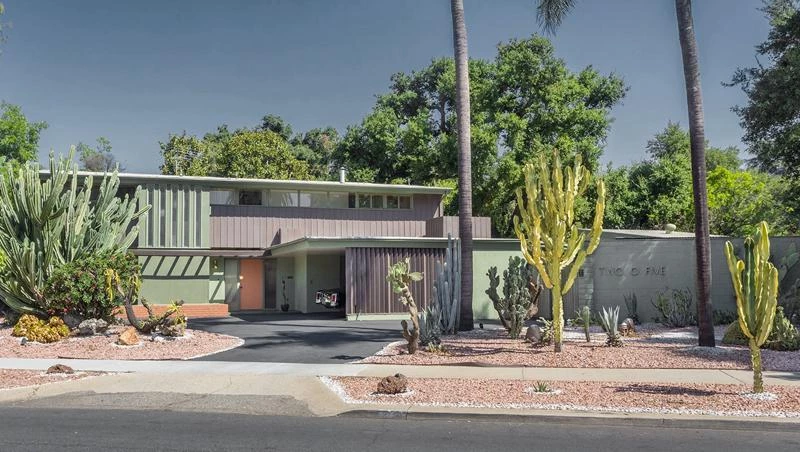
The African-American architect Paul R. Williams channeled the glamorous but breezy spirit of the Golden Age of Hollywood in designs that allowed his clients and the public to imagine themselves in fantasies akin to those spun out by the great movie studios.
Revisions of the modern architectural canon have been going on for almost as long as modern architecture itself. But our perceptions of what constitutes excellence in the building art and who should get credit for it have shifted considerably of late. Beginning in the 1970s there was a move away from the standard definition of Modernism as an unadorned machine aesthetic and toward a broader purview that included many of the lesser-known Modernist variants that flourished simultaneously with its most familiar manifestation—the reductive International Style.
More recently, closer attention has been given to neglected issues of gender and race. Among the reputations that have benefited most from the growing insistence that we expand the canon beyond the white, male, European-American roster that dominated critical discourse throughout the twentieth century has been that of Paul R. Williams, the Los Angeles–based African-American architect whose five-decade career was astoundingly prolific (he produced some three thousand designs, in contrast to Frank Lloyd Wright’s eleven hundred) and incomparably emblematic of its cultural milieu. Better than any of his architectural peers, Williams defined the Golden Age of Hollywood in built form and channeled its glamorous but breezy spirit in designs that allowed his private clients and the general public to participate in fantasies akin to those spun out by the great movie studios.
The fact that a Black man could have accomplished so much in the lily-white world of midcentury American architecture seems no less remarkable now than it did when he was still active six decades ago...
The New York Review: Hollywood’s Master Builder
Reviewed:
Paul R. Williams: Classic Hollywood Style by Karen E. Hudson, with photography by Benny Chan and a foreword by Michael S. Smith Rizzoli, 240 pp., $65.00
Paul R. Williams by Marc Appleton, Stephen Gee, and Bret Parsons Angel City, 204 pp., $60.00
Regarding Paul R. Williams: A Photographer’s View by Janna Ireland Angel City, 223 pp., $50.00
Hollywood’s Architect: The Paul R. Williams Story a documentary film directed by Royal Kennedy Rodgers and Kathy McCampbell Vance


